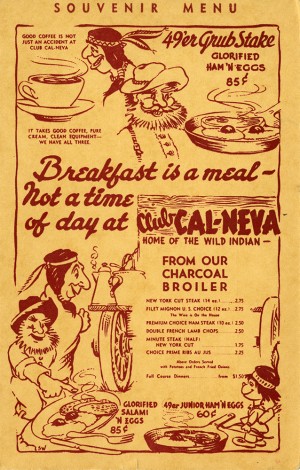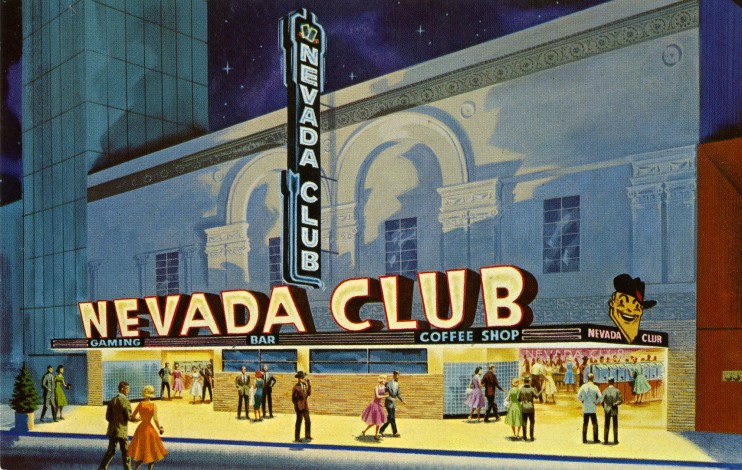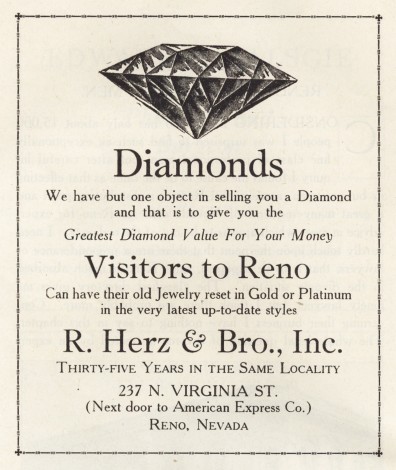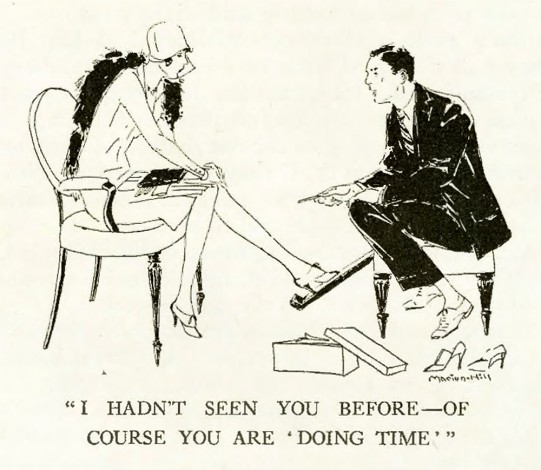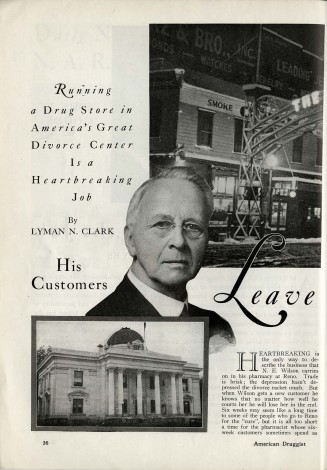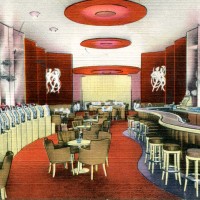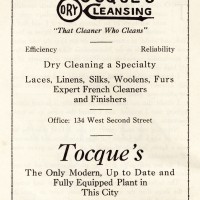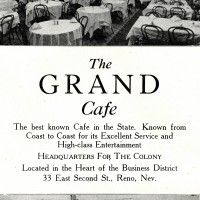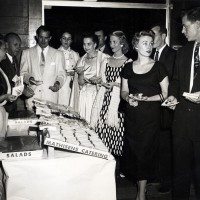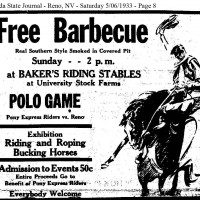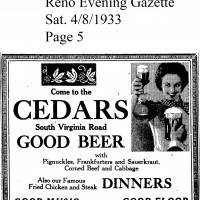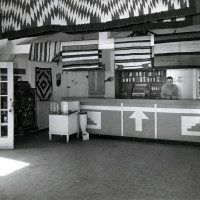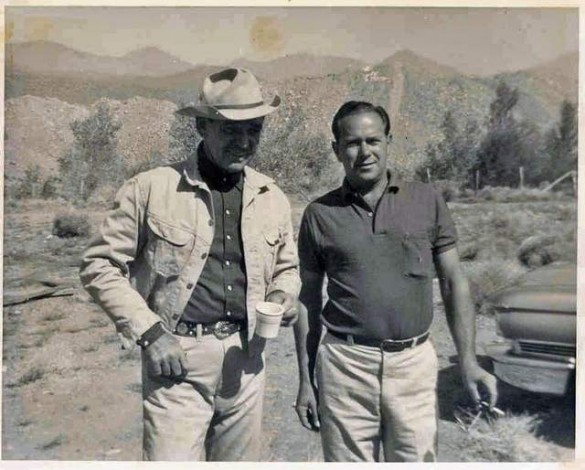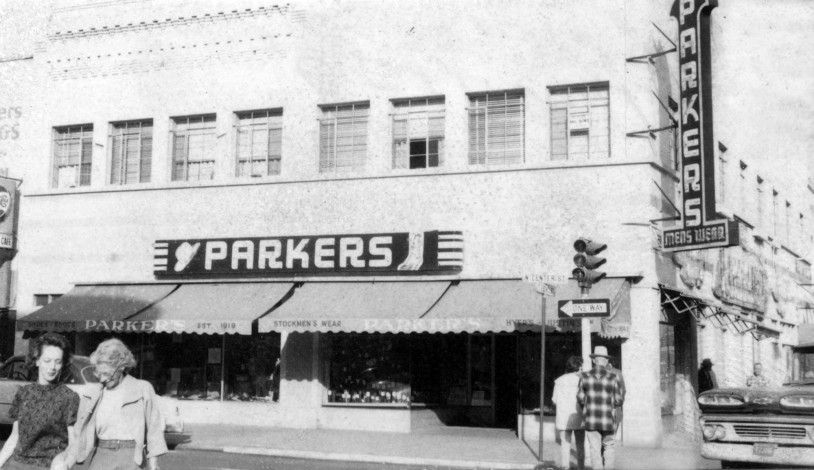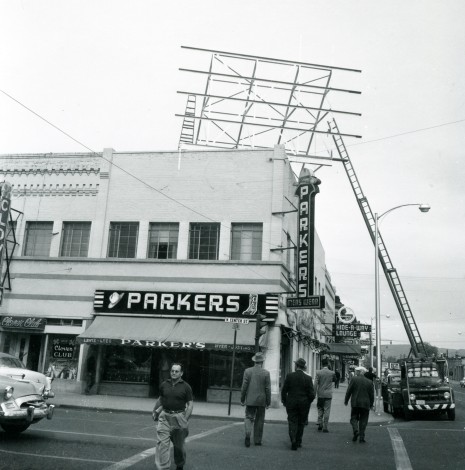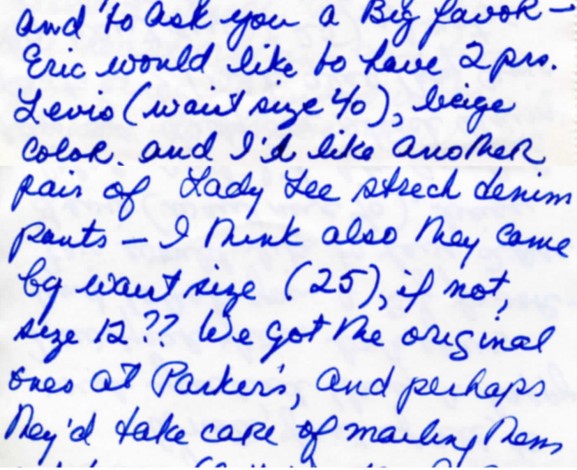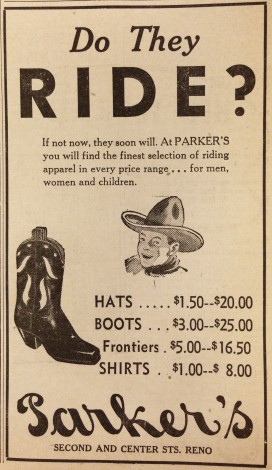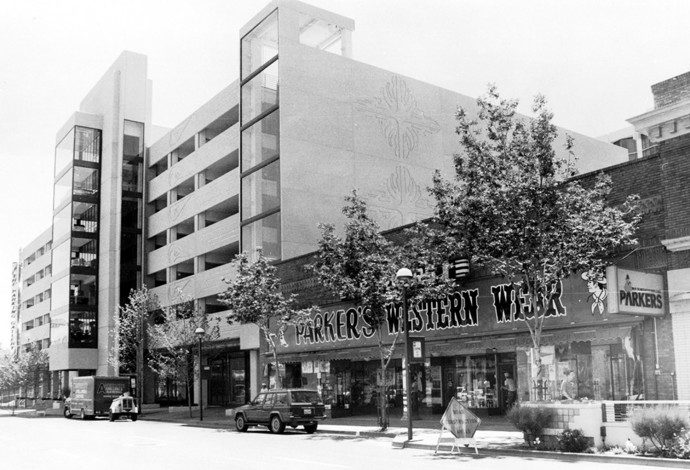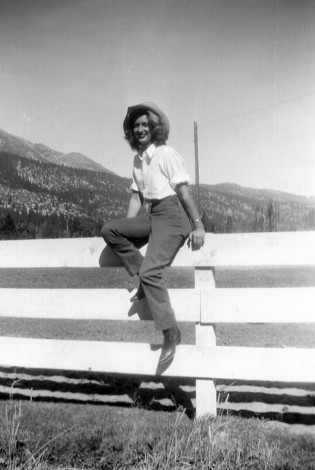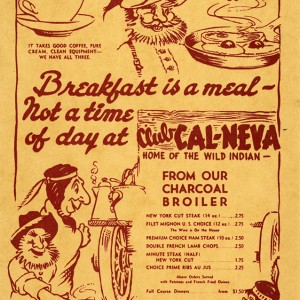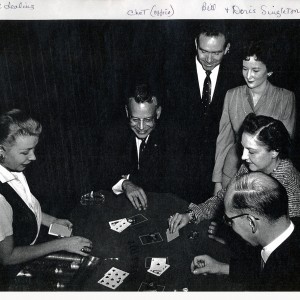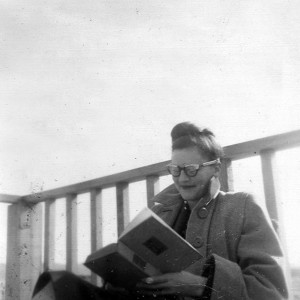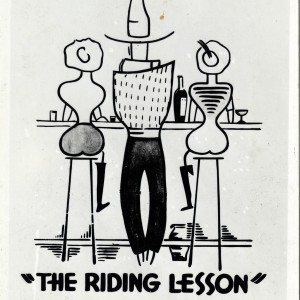It took a cooperative effort on the part of the entire community to keep the divorce mill running smoothly. Some Reno citizens made money off the trade by providing services to these temporary residents, in addition to their permanent customer base. The most obvious services required by the divorce colony were housing, shopping, dining, and entertainment, but there was also a need for drivers, babysitters, and housekeepers, to name a few.
Reno’s ethnic populations were often especially suited to meet the needs of members of this temporary community. Many divorce-seekers hailed from cosmopolitan centers like Los Angeles, New York City, and Chicago, where specialized eateries were commonplace. Herman Lissan and L. Dinitz opened a kosher deli in Reno in July 1931 specializing in Romanian cuisine. Abraham Seltzer provided room-and-board and Yiddish translation services for members of the visiting Jewish community.
Restaurants, boutiques, and bars were some of the most blatant in their efforts to court the colony. Some paid to advertise in divorce guidebooks that were distributed nationally, while others gained free publicity through the relentless national coverage of the Reno scene in newspapers and magazines. The Grand Café and the Thomas Café stood out as notable eateries heavily patronized by divorce-seekers. The fashion-conscious divorcée could shop in Phillips Fur Shop next to the Granada Theater, while temporary residents of the guest ranches could find duds for dudes at Parker’s Western Wear.
Featured Resources
Parker’s Western Wear
Parker’s Western Wear was one of Reno’s most legendary retailers, beloved to divorce-seekers and longtime residents alike. George Parker opened the store just after World War I as a men’s haberdashery, offering clothing, shoes, and accessories under the banner, “A Man’s Store.”
Originally located at the corner of Center and Second Streets, Parker’s began to offer selected items of clothing for women and children in the 1930s. In 1934, it became the exclusive local distributor of “Levi’s for the Ladies,” copper riveted “waist overalls” tailored specifically for a woman’s body.
With its aisles of Stetson hats, Justin boots, and denim, Parker’s became the chosen outfitter for local ranchers, rodeo spectators, and guest ranch clientele. Advertising in dude ranch brochures ensured that Parker’s would be an early stop for any visitor interested in “going western,” and reports of famous customers including Clark Gable justified its 1950s slogan, “One of the West’s Better Known Stores.”
